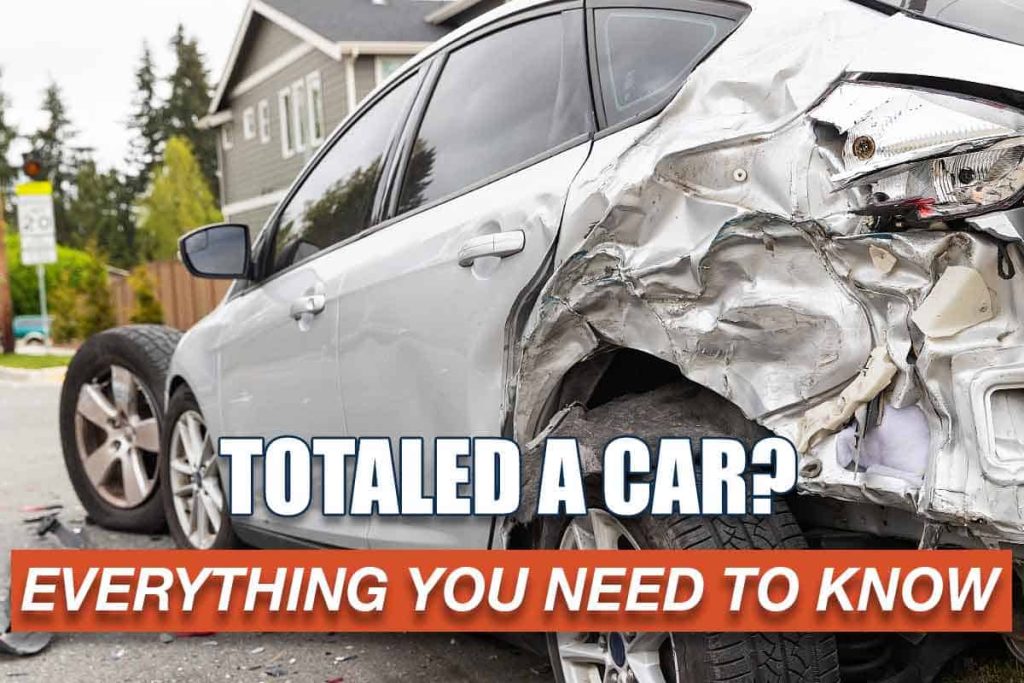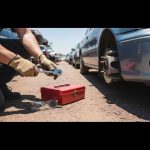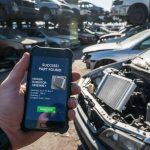When a car gets into an accident, one of the outcomes could be that the car is declared a total loss, commonly referred to as a “totaled car.” This guide will provide comprehensive insights into what it means when a car is totaled, the insurance implications, and the options available to car owners. Understanding these aspects is crucial for anyone who owns a car or is considering purchasing one.

What Does ‘Totaled’ Mean?
When a car is declared “totaled,” it means the cost to repair the car exceeds its actual cash value or is near its value. In simpler terms, it’s not financially sensible to repair the car. This situation can arise from severe accidents, natural disasters, or even vandalism.
Understanding the Term “Total Loss”
When an accident occurs, one of the first things your auto insurance company will evaluate is whether the vehicle is a total loss. This doesn’t necessarily mean the car is irreparable. Instead, it often means that the cost to repair the vehicle surpasses its current market value. But how does one determine if your car is in this category? The process typically involves a detailed assessment of the damage in comparison to what the car is worth. If repair expenses exceed a certain percentage of the car’s value (this percentage can vary based on the insurer and regional regulations), then the car is considered totaled.
Total Loss: More Than Just Damage
When your car is damaged in an accident, it’s not just about the visible dents and scratches. The cost of repair can sometimes exceed the value of your car, leading insurance companies to declare it a total loss. But what does this mean for you? If you file a claim, your insurance company will pay the fair market value of the vehicle, which is determined based on factors like age, make, model, and overall condition. However, this amount might not cover what you still owe on the vehicle, especially if you have a loan or lease. This is where gap insurance will cover the difference, ensuring you’re not left in a financial bind.
New Car Woes: When Your Prized Possession Faces the Unthinkable
Imagine the heartbreak: you’ve just driven your new car off the lot, and then, disaster strikes. An accident occurs, and suddenly, the vehicle you’ve invested so much in faces significant damage. If the accident is your fault, your driver’s insurance company will step in. However, if another party is at fault, the at-fault driver’s insurance company becomes responsible. In either scenario, if the value of the vehicle is less than the repair costs, your new car might be declared a total loss. This can be especially daunting if the car is valued at a higher price than its current market worth. But don’t despair; options like rental car reimbursement and new car replacement coverage can offer some respite in these challenging times.
Navigating the Financial Implications of a Totaled Car
Imagine you’ve recently purchased a new car, and then, unfortunately, it gets into an accident. The rapid depreciation of new vehicles can lead to a scenario where the insurance payout doesn’t align with the car’s recent purchase price. This is especially concerning if you have a financed car. Suddenly, you might find yourself in a situation where your car has been totaled and you still owe more than the insurance is willing to cover. This gap is where totaled car insurance comes into play, and understanding it is crucial to avoid potential financial pitfalls.
How Do Insurance Companies Determine If a Car is Totaled?
Insurance companies use various methods to determine if a car is a total loss. The most common approach is the total loss formula (TLF). If the sum of the car’s repair costs and its salvage value exceeds its actual cash value, the car is considered totaled. Different states might have specific thresholds or percentages that define when a car is totaled.
Car Considered Totaled: The Ins and Outs
A car considered totaled doesn’t always mean it’s irreparable. It’s a term used when the cost of repair surpasses a certain percentage of the car’s value. This percentage can vary by state and is set by car insurance companies. If you decide to keep the car, you’ll need to understand its salvage value and potential repair costs. Additionally, the insurance commissioner in some states might have specific guidelines on when a vehicle is considered totaled. It’s essential to be aware of these nuances to navigate the insurance landscape effectively.
The Role of Car Insurance in Totaled Vehicles
Car insurance plays a pivotal role when a car is declared a total loss. Depending on the type of coverage one has, the insurance company will compensate for the car’s actual cash value. It’s essential to understand your car insurance policy and what it covers, especially concerning totaled vehicles.
What Happens When Your Car Gets Totaled in an Accident?
If your car gets totaled in an accident, the insurance company will assess the damage and the car’s value. If the car is financed, the insurance company will first pay off the loan amount. If there’s any remaining balance, it will be given to the car owner. However, if the owed amount is more than the car’s value, the owner might have to pay the difference unless they have gap insurance.
What’s Next After Your Car is a total Loss?
The immediate aftermath of having a car totaled can be overwhelming. Questions swirl: “What happens next?” “How do I determine the value of my totaled vehicle?” “What happens if your car was a recent acquisition?” If you opt to keep your car after it’s declared a total loss, it’s essential to be aware of its salvage value and the potential repair costs. Moreover, if you’re skeptical about the valuation given by your insurer, consider seeking an independent appraisal. Knowledge is power, and understanding the value of a totaled car ensures you’re equipped to make informed decisions moving forward.
Gap Insurance: What Is It and Why Consider It?
Gap insurance covers the difference between what you owe on a car and its actual cash value. It’s especially beneficial for those who have financed their cars and owe more than the car’s current value. It ensures that if the car gets totaled, you won’t be left with a hefty balance to pay off.
The Actual Cash Value (ACV) Explained
The actual cash value (ACV) of a car is its current market value, considering factors like age, make, model, and overall condition. When a car is totaled, insurance companies will typically pay out the ACV, minus any deductibles.
Comparison of Costs When a Car is Totaled
| Factor | Example Car: 2015 Sedan | Description |
|---|---|---|
| Repair Costs | $5,500 | The estimated cost to repair the car after a significant accident. |
| Actual Cash Value (ACV) | $7,000 | The car’s current market value considering factors like age, make, model, and overall condition. |
| Salvage Value | $1,500 | The estimated value of the car if it were sold for parts. |
What If You Still Owe Money on a Totaled Car?
If you’re still paying off a car loan when your car gets totaled, the insurance payout might not cover the entire owed amount. This situation is where gap insurance becomes invaluable. Without gap insurance, you’d be responsible for paying the difference between the insurance payout and the remaining loan balance.

Insurance Coverage Types and Their Role in Totaled Cars
| Insurance Type | Coverage Amount | Role in Totaled Cars |
|---|---|---|
| Collision Coverage | Up to $7,000 (ACV) | Pays for damage to your car resulting from a collision with another car or object. |
| Comprehensive Coverage | Up to $7,000 (ACV) | Pays for damage to your car caused by events other than collisions, such as natural disasters or theft. |
| Gap Insurance | $2,000 (Difference between loan amount and ACV) | Covers the difference between what you owe on a car and its actual cash value. |
Can You Keep Your Totaled Car?
Yes, you can choose to keep your totaled car. If you decide to do this, the insurance company will deduct the car’s salvage value from the payout. However, keeping a totaled car comes with its challenges, such as obtaining a salvage title and potential difficulties with future insurance or resale.
You will need to find parts to fix it and get it back on the road without breaking the bank; we suggest a junkyard near you to get the parts you need.
Pros and Cons of Keeping a Totaled Car
| Pros | Cons |
|---|---|
| Control over repairs: You decide which parts to fix and can potentially save on repair costs. | Potential difficulties with future insurance: Some insurers may refuse coverage or charge higher premiums. |
| Emotional attachment: For those who have had the car for years and have memories associated with it. | Obtaining a salvage title: This title indicates the car has been totaled and rebuilt, which can affect its resale value. |
How to File an Insurance Claim for a Totaled Vehicle
Filing an insurance claim for a totaled car involves several steps:
- Contacting your insurance company immediately after the incident.
- Providing necessary documentation, such as photos of the damage, police reports, and any other relevant information.
- Cooperating with the insurance adjuster during the assessment process.
- Reviewing and accepting the settlement offer.
Steps to File an Insurance Claim for a Totaled Vehicle
| Step | Action | Typical Duration |
|---|---|---|
| 1 | Contact your insurance company. | Within 24 hours of the incident |
| 2 | Provide necessary documentation (photos, police reports, etc.). | 3-5 days |
| 3 | Cooperate with the insurance adjuster. | 1-2 weeks |
| 4 | Review and accept the settlement offer. | Varies (1-4 weeks) |
The Future: Insuring a Car That Has Been Totaled
If you decide to repair and keep a car that has been declared totaled, insuring it in the future might be challenging. Some insurance companies might refuse to offer comprehensive or collision coverage, while others might charge higher premiums. It’s essential to shop around and compare quotes to find the best deal.
Key Takeaways:
- A car is considered “totaled” when repair costs exceed its actual cash value.
- Insurance plays a crucial role in determining and compensating for a totaled car.
- Gap insurance can cover the difference between a car’s value and the owed amount on a loan.
- Owners can choose to keep their totaled cars but should be aware of the implications.
- Insuring a previously totaled car in the future might be more challenging and potentially more expensive.




